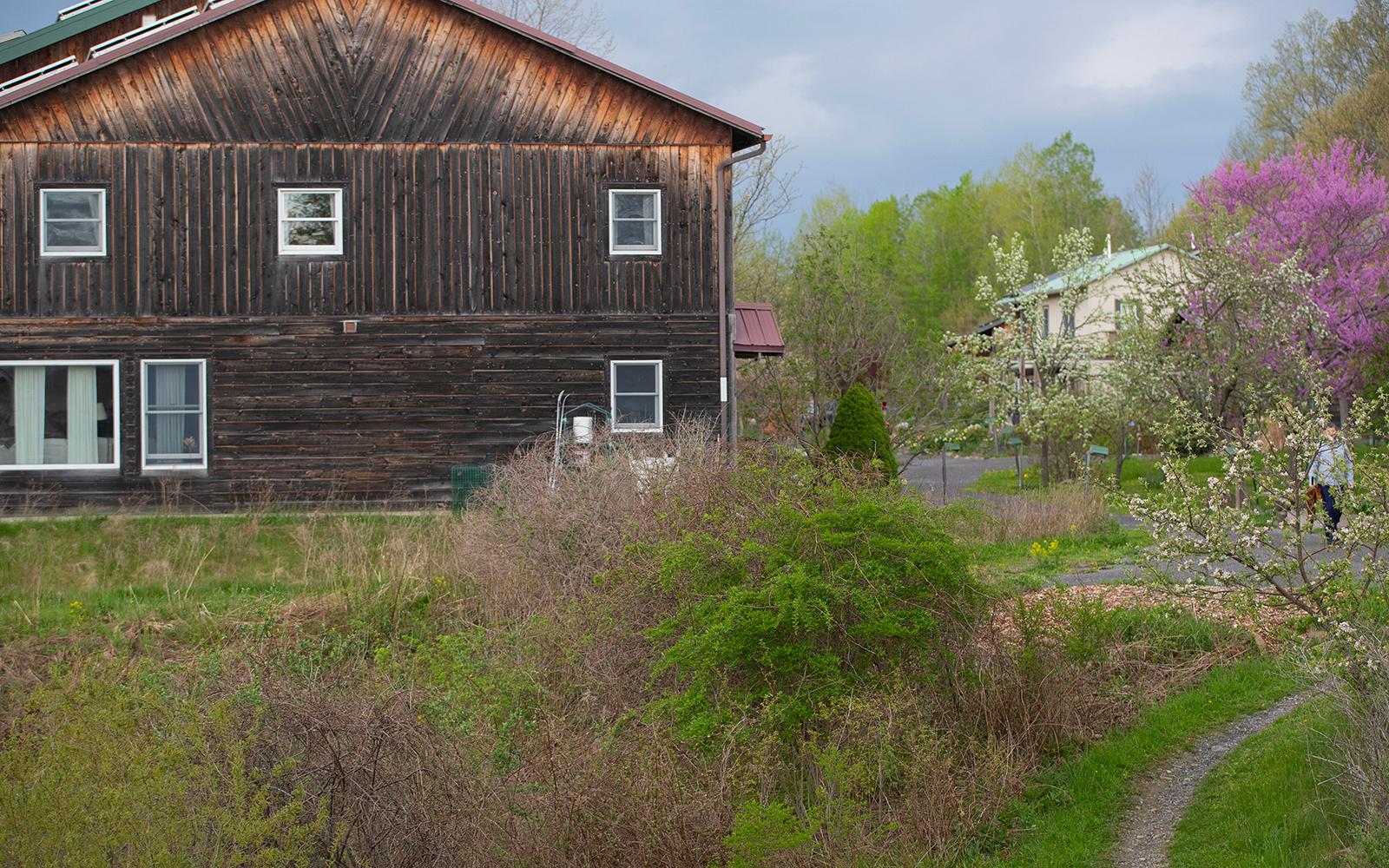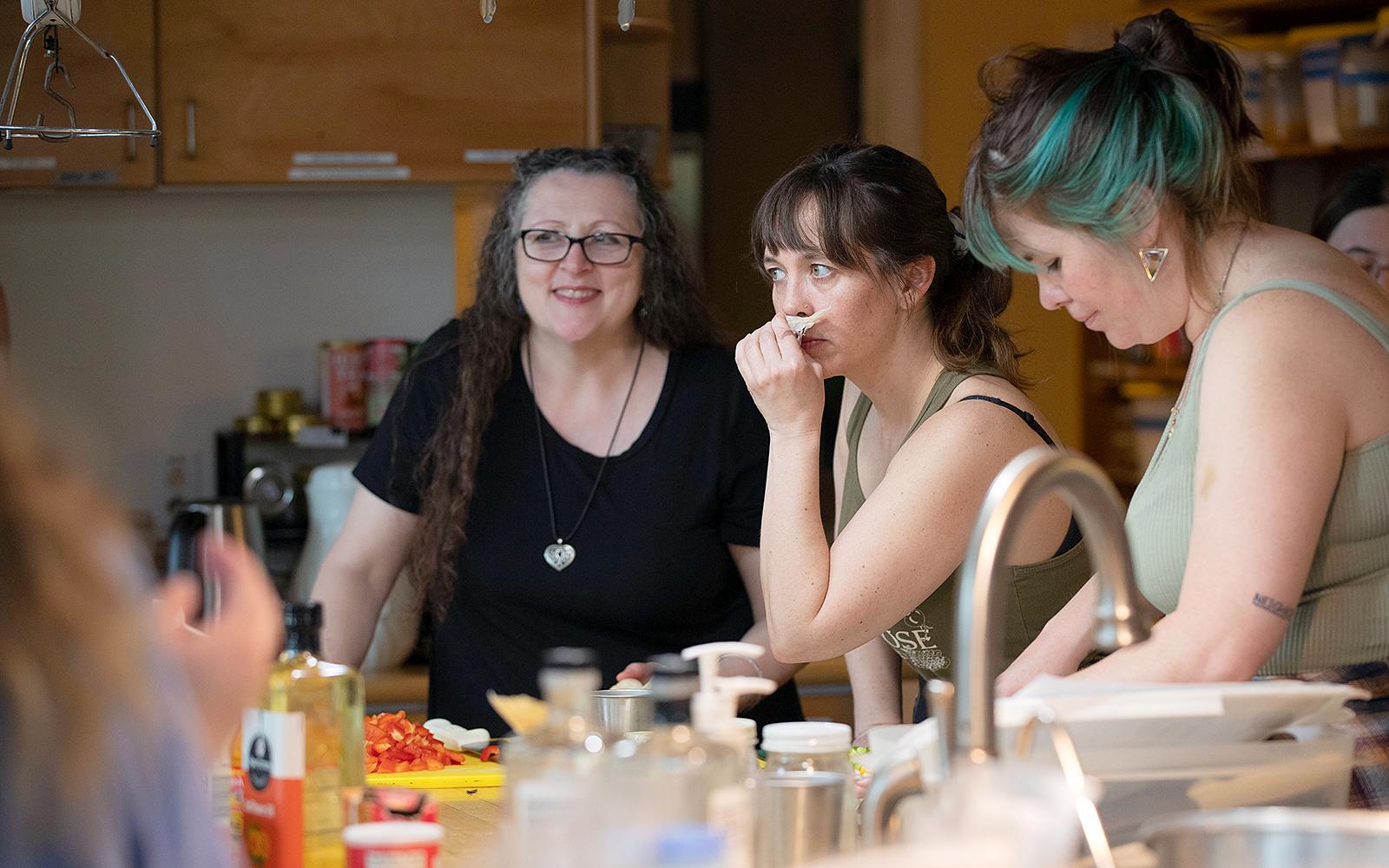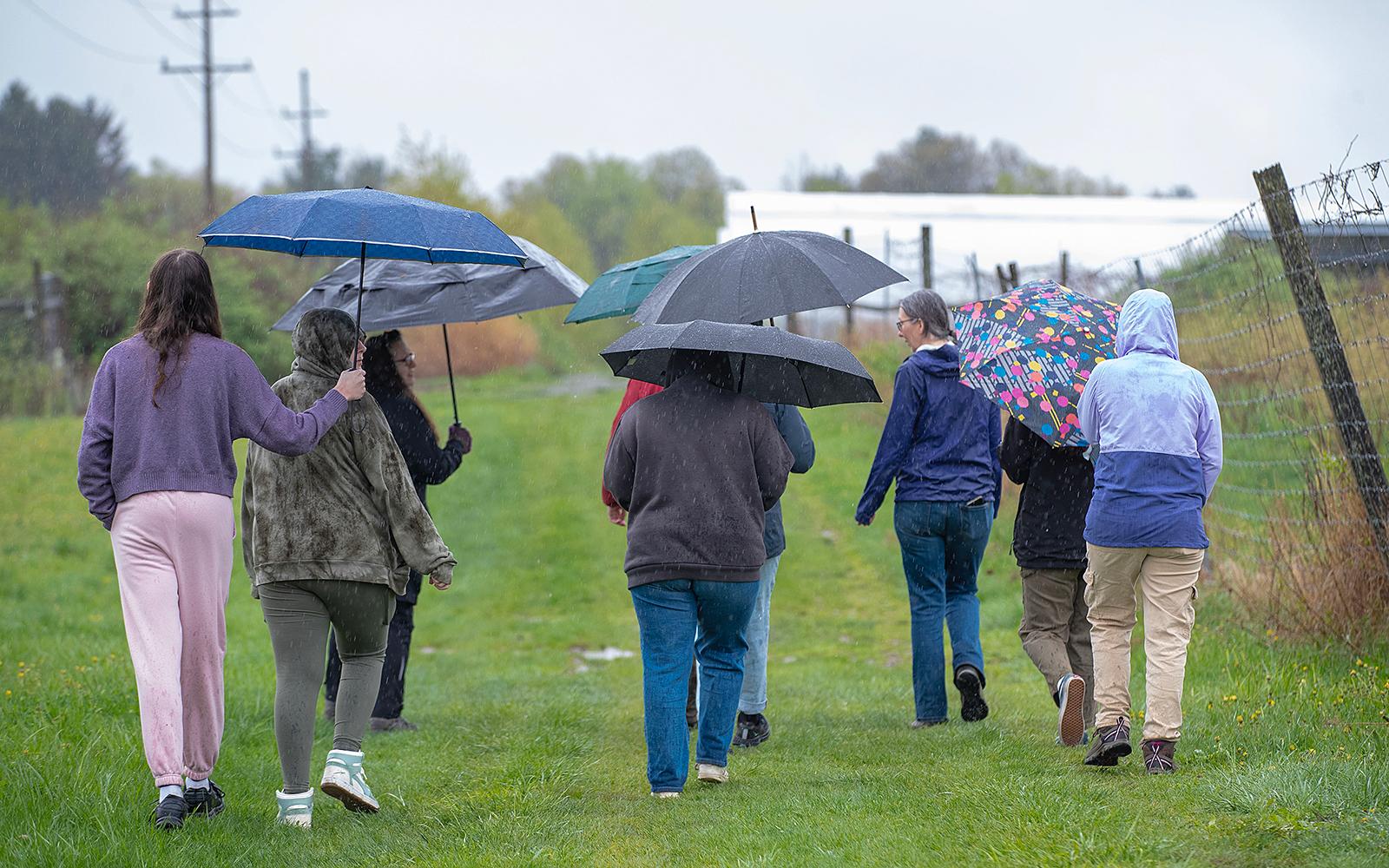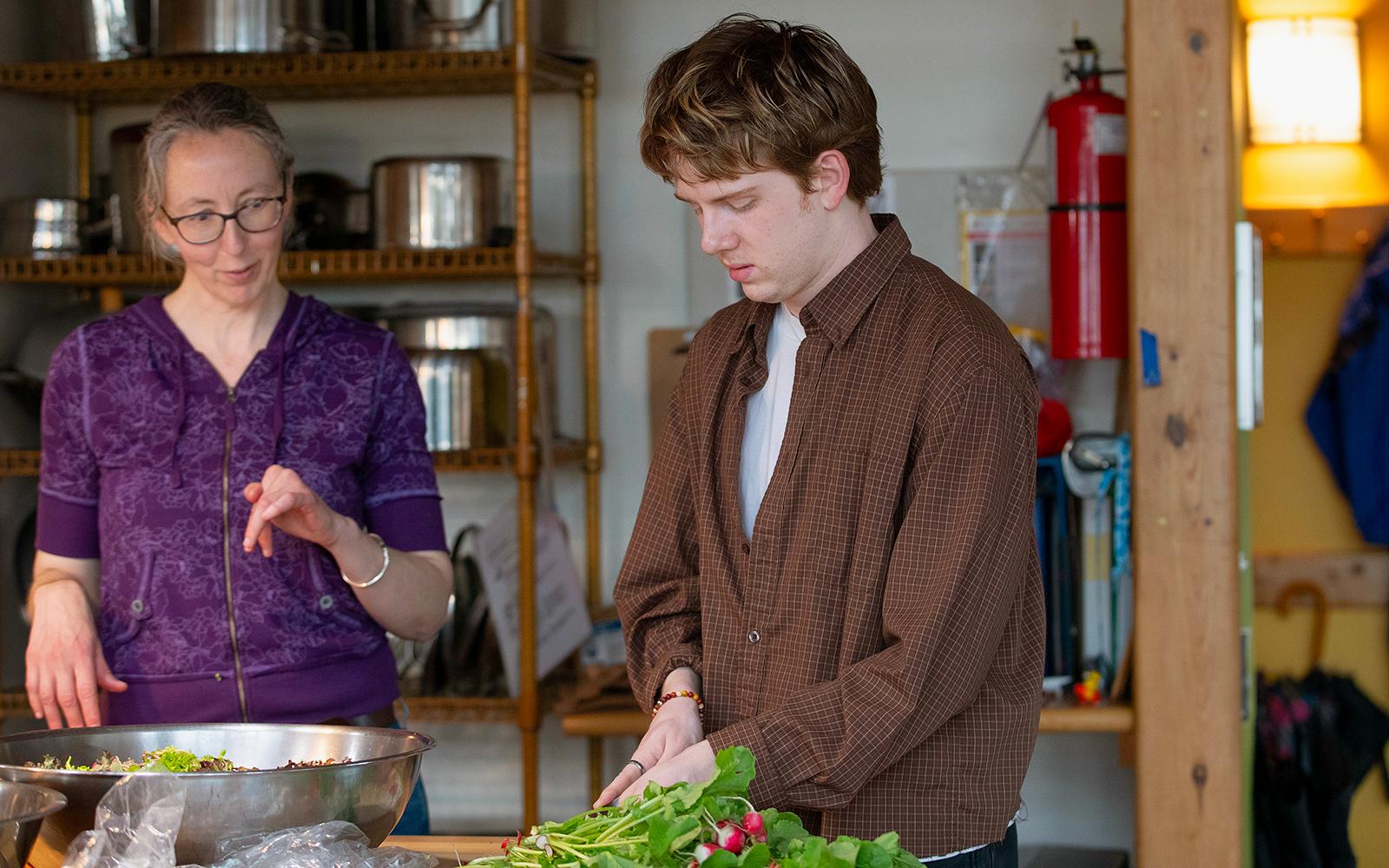Low-impact ecovillage holds tools and lessons for Potsdam students
Packed for an overnight trip, a group of SUNY Potsdam students set out for the Finger Lakes in hopes of glimpsing a future where less can be so much more.
Their destination was understated and humble by design, but that lack of impact was precisely what they were looking for—and what set the Ecovillage at Ithaca apart. Students in ENVR 343, Environment and Society class, were keen to understand how the members of the largest ecovillage in the country were living and thriving while consuming less than a third of the resources of average American individuals.
With an eye for practices and ideas they could bring back with them to the North Country, the cohort—led by Dr. Heather Sullivan-Catlin, a professor of sociology & criminal justice—immersed themselves in the village, took part in workshops and learned about aspects of village life spanning governance, communication, community-building and decision-making. They learned how initiatives in renewable energy, green building, ecosystem restoration and composting were helping move the needle toward concrete sustainability goals.
“Anxiety over the ecological crisis we are in is a prominent theme in my students’ writing,” Sullivan-Catlin said. “I tell them, action is the antidote to despair.”
Sustainability in action
The Ecovillage at Ithaca is comprised of 100 households in three neighborhoods, where residents tackle sustainability challenges through combined and integrated ecological, social and economic practices—and have been since the 1990s.


While green technologies lower the overall carbon footprint, so do extensive uses of community spaces and close community ties where many aspects of life are shared and coordinated for greater efficiency. Community dinners several nights a week reduce time and energy use while bringing residents together. Tight-knit connections allow for carpooling and babysitting co-ops, and strong educational components ensure the lessons can spread beyond the village.
Perhaps most importantly, the ability to be active in addressing environmental destruction and climate change helps residents handle the emotional burden of life in unprecedented times.
Many young people carry deep concerns about the human intersection with a rapidly changing ecological landscape. Recent studies show that 60 percent of younger people surveyed globally are worried about climate change, ineffective governmental action and damage to Indigenous communities. For those searching for ways to live in better integration with each other and the environment, the village offered touchstones and new ways to look at the future.

“There are many scientific and technological implementations within the ecovillage. They are great for sustaining future generations. But what I think is the best part of the ecovillage is the close community."
SUNY Potsdam Student
Student Cassaundra Philips described how it felt witnessing solutions for what researchers are describing as “ecological grief” and “solastalgia” as they begin to quantify the toll of climate change on mental health.
“This semester we covered many important and heavy topics that sometimes left me feeling overwhelmed and discouraged,” said Phillips. “But learning about intentional communities and visiting one, unexpectedly sparked something inside of me. Although we spent a little over 21 hours at the Ecovillage, I feel like that time was filled with meaning, connection and inspiration that will stay with me.”
Lessons to bring home
Sullivan-Catlin has led multiple excursions to the village’s living laboratories in hopes they will spark these kinds of “ah-ha” moments and inspire action at home. Growing foods and fostering agriculture are key values at the village, she said, with four farms modeling different approaches for how to do that sustainably.
“Ecosystem restoration and biodiversity are also important practices at EVI that we can expand on campus,” she said. “The main takeaway I hope students get is that people are taking action—and have been doing so for decades—to address climate change and other environmental problems. And anyone can do it!”

The class explored the writings of many change agents who offer alternative perspectives, such as Robin Wall Kimmerer (who visited SUNY Potsdam earlier this year), Ayanna Elizabeth Johnson, and Joanna Macy, Sullivan-Catlin said. At the ecovillage, students witnessed ideas put into practice.
“There are many things we do at Potsdam that happen at EVI,” Sullivan-Catlin said. “For example, we have just started composting in a systemic way on campus. At EVI, they have been experimenting with composting for decades—and each neighborhood has a slightly different system as they tinker with various techniques. In many ways, living on campus is a communal situation like an ecovillage and students can see the parallels, especially with food systems and shared resources such as laundry and recreational facilities.”
Steven Higgins ’25, who majored in anthropology and women’s and gender studies, believes the climate crisis is embedded in every corner of society and must be met there. The trip inspired him to think deeply about ways his own practices could be more sustainable.

Steven Higgins '25 prepares fresh vegetables for a community dinner.
“As natural disasters intensify and certain regions become less habitable for humans, more and more people seek refuge in places like Ecovillage Ithaca and across Upstate New York,” Higgins said. “The Ecovillage speaks to the strength of constructing community and reconsidering methods of economy to make eco-friendly lifestyles feel natural and easy. The climate crisis might not be something everyone thinks about, but everyone plays a role in it, for better or worse.”
Article by Bret Yager. Photos by Sylvia Grant '25
